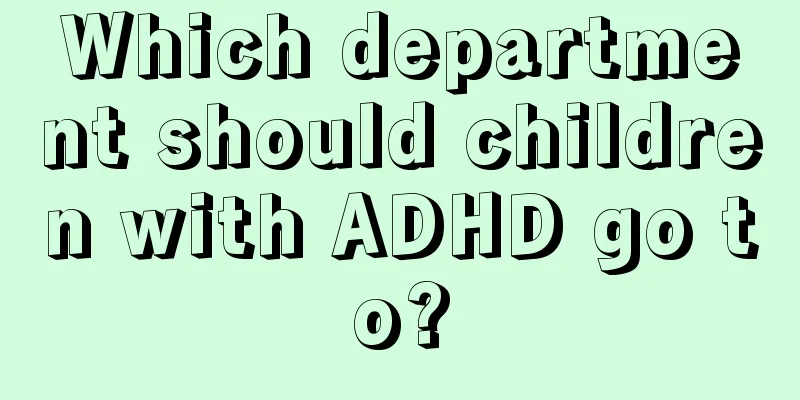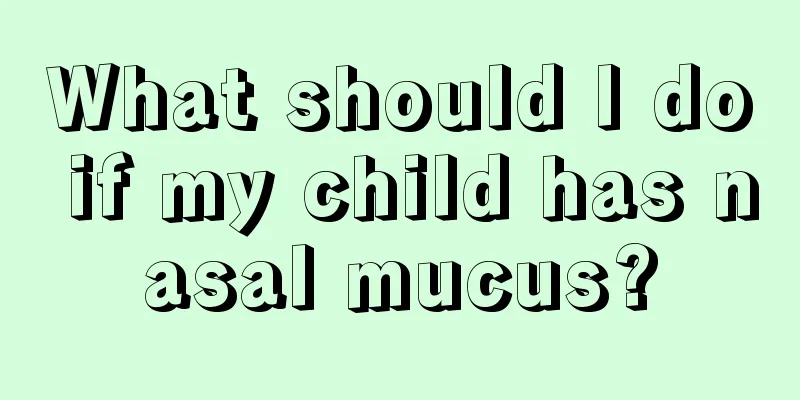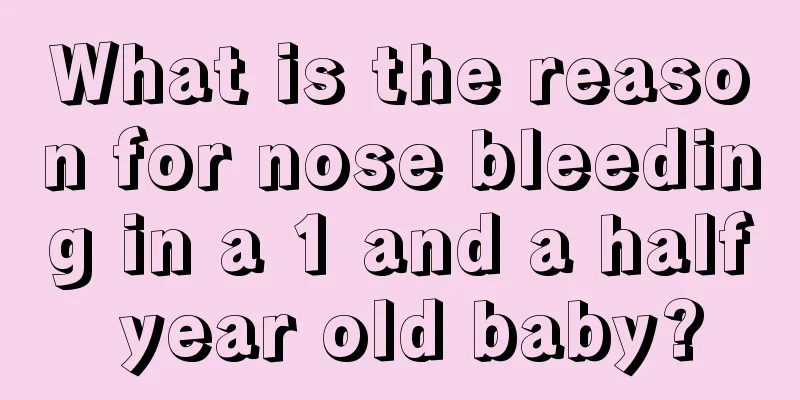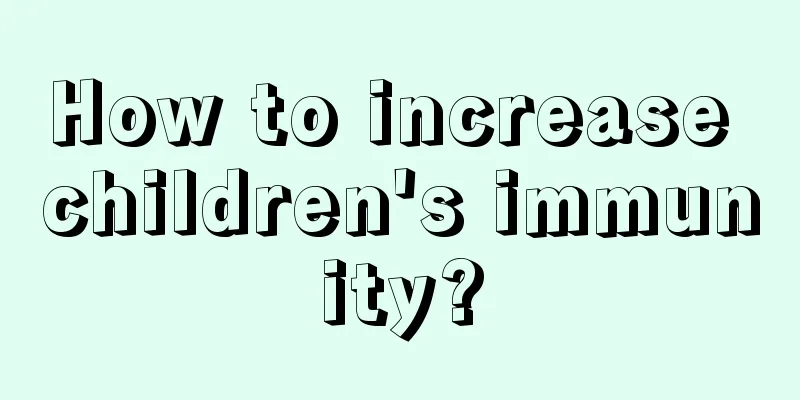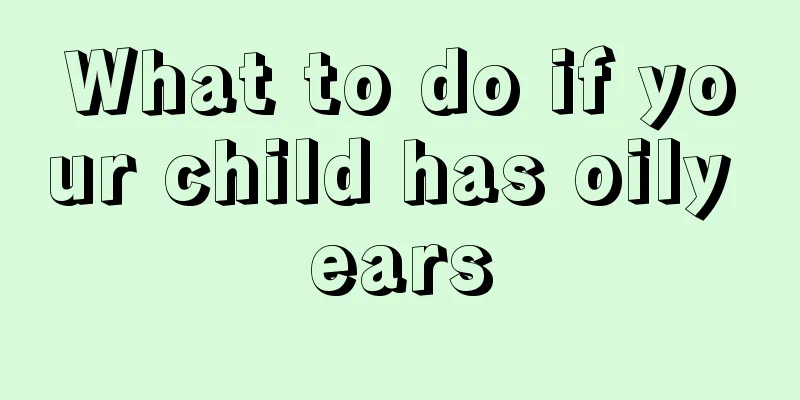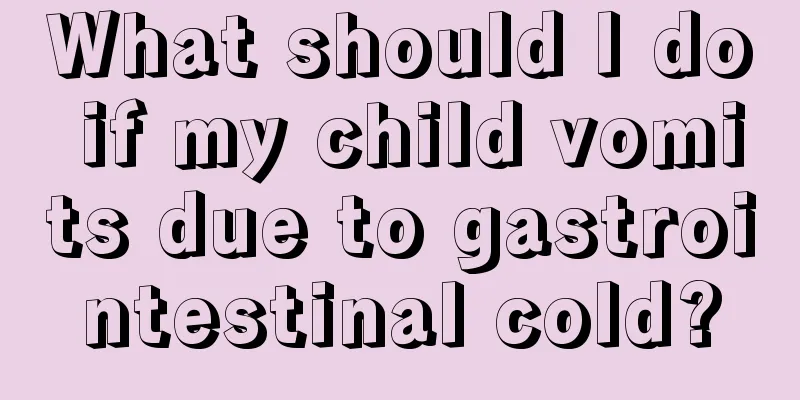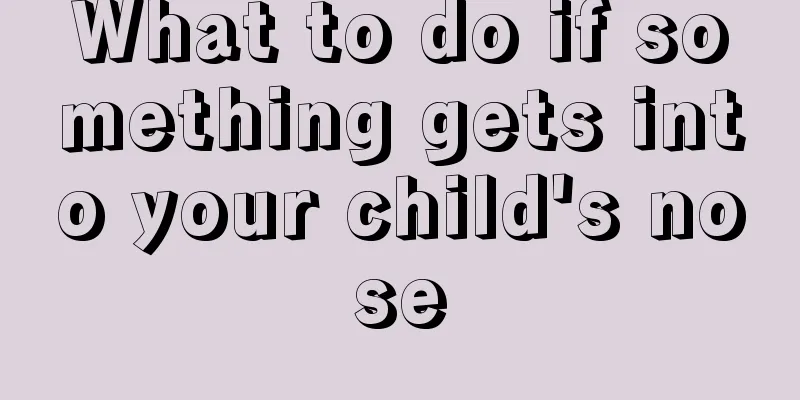What should I do if my child has a fever at night?
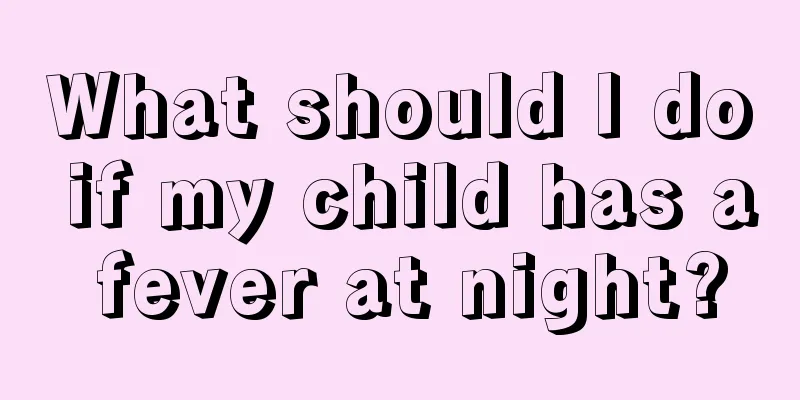
|
Children in every family are the apple of their parents' eyes, so every parent will always pay attention to the growth of their children. Children's immunity is relatively low, and they will catch a cold and fever if they are not careful. Some parents will find that their children have a fever at night, so what methods can be used to deal with it? Next, let me explain this to you. A high fever above 39°C can easily cause convulsions in children. Children under 6 months old should be treated promptly when they have a fever because their condition changes rapidly. The World Health Organization recommends that no antipyretic drugs should be used for infants under 2 months old. Infants and young children under 3 months old should use drugs to reduce fever with caution, and physical methods should be used to reduce fever instead. If the antipyretic effect of medication is not good or the body temperature exceeds 39°C within two hours after taking medication, physical methods should be used to reduce the temperature. It takes a certain amount of time for drugs to take effect. When a child's temperature suddenly exceeds 40°C, physical methods should be used to reduce the fever immediately. What to do if your child has a fever of 39 degrees: 1. Warm water bath Dip a towel in warm water (the water temperature should not be too hot to touch) and wipe the neck, armpits, and thighs for 5 to 10 minutes. You can also use a commercially available "cooling patch" (or a household ice pack) on the forehead to help dissipate heat and reduce temperature. 2. Take antipyretics When your baby's fever exceeds 38.5 degrees, the doctor will consider using oral medications or rectal suppositories to reduce your baby's fever. Or when the above physical measures are not effective, oral antipyretics can be taken to reduce the temperature. 3. Ventilation and heat dissipation Ventilate more, pay attention to heat dissipation, wear loose clothes, and avoid wrapping yourself with a quilt. You can use air conditioning in the summer and control the room temperature at around 27℃. Remember to open windows regularly to allow air convection in the room. 4. Ensure moisture Drink plenty of water and eat liquid foods, such as watermelon juice, to ensure that the body has sufficient energy and water. 5. Take off excess clothing If your baby's limbs, hands and feet are warm and he is sweating all over, it means he needs to dissipate heat and he can wear less clothes. 6. Get enough sleep Getting more sleep and ensuring adequate sleep can help you recover from the illness. However, when infants and young children under 3 years old have a high fever, physical cooling methods should be used first. Generally, antipyretic injections and antipyretic drugs are not required to avoid collapse and drug toxicity reactions. The use of other drugs should also be cautious. However, many parents believe that it is safe to help their baby reduce the fever as soon as possible. In fact, if it is a minor illness, the fever will last for about 2-3 days, and the normal attitude towards fever is to find out the cause behind the fever. It is unscientific to forcibly reduce the temperature. Don’t just ask the doctor to drive away the fever, because sometimes the fever is caused by something special going on in the body! The above is the relevant content about the child’s fever that does not subside at night. When children have a fever or a cold, it is best for parents to sleep with their children. If anything happens in the middle of the night, it can be dealt with in time. Children should be allowed to drink plenty of water and not eat greasy food. If possible, take them to the hospital for doctor's help. |
<<: What to do if a 50-day-old child has a fever
>>: What should I do if my one-year-old baby has facial allergies?
Recommend
Diet therapy for bronchitis in children
Children belong to a vulnerable group, so they ar...
What is the cause of the fever and convulsions in children?
The weather and temperature are changeable now. M...
What to do if children have wind-heat cold
Colds are common exogenous diseases in all season...
What causes rubella in children?
Sometimes when a child has health problems, paren...
Five benefits of having a dad take care of your kids
1. Cultivate children's sense of responsibili...
Mouth-to-mouth feeding causes stomach problems in children
Haohao is just in the first grade of elementary s...
What is the reason for high white blood cell count in newborns?
There will be many phenomena after the birth of a...
Eight-month-old baby sweats on the back of his head
After the baby is eight months old, his body has ...
What to do if your newborn has bubbles on his mouth
Our mouth is the most dangerous part of the body,...
What should I do if my child has new teeth growing behind his front teeth?
Many children are in the stage of growing teeth w...
What should I do if my baby cries while swimming?
Summer is here, and all parents like to take thei...
Will neonatal dacryocystitis heal on its own?
Dacryocystitis is generally divided into acute an...
Is red eyes a disease in children?
Children's eyes are the cleanest things in th...
How many pounds does a newborn baby normally gain per month?
Newborns need careful care from their parents aft...
What should I do if my child cannot gain weight?
Some new mothers find that their children are eat...
